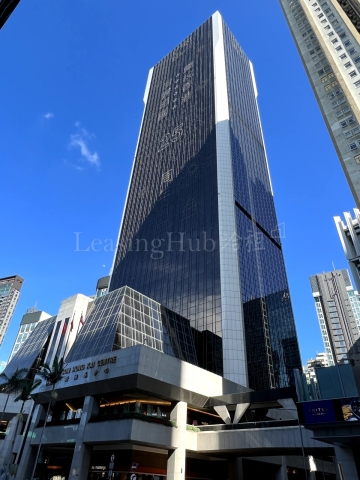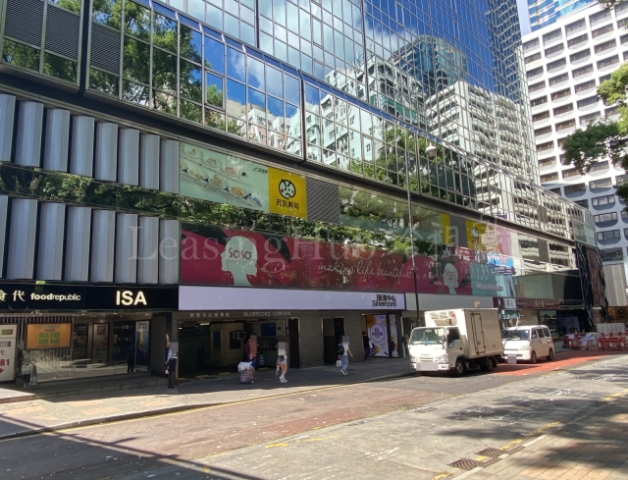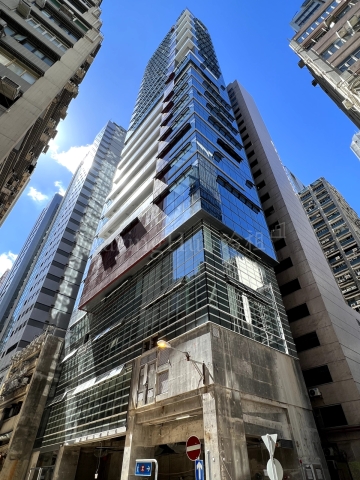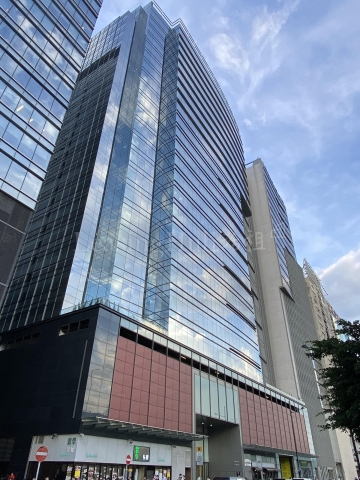Grade-A office rents fell over 30 per cent since their peak in 2019 and analysts predict a further 5 per cent to 7 per cent drop this year
Chinese companies accounted for only 12 per cent of the total leasing, compared with their past record of 15 per cent to 20 per cent, according to a property agency
Hong Kong’s efforts to regain its status as an international business hub received a setback after its border reopening did not bring in enough corporate tenants as expected, with a slowing economy and higher interest rates weighing on demand for office space.
The insurance sector has become a key demand driver of office rental space as international and mainland insurers eyed the influx of mainland customers. But that demand has failed to support the falling grade-A office market in the city, according to analysts.
“The market has been longing for most of the Chinese companies to come back after the border reopened, but [their return] proved to be slower than expected,” a property agent said.
In addition to tepid insurance bids, demand was also weak from financial firms, wealth management companies, and firms related to banking and finance as the economy slowed and interest rates rose.
Grade-A office rents fell over 30 per cent from their 2019 peak and analysts predict that rents will fall a further 5 to 7 per cent this year before a gradual recovery in 2024.
“The situation of supply outstripping demand continues, with little new demand coming from mainland China,” the agent said.
The agency said in the first six months of 2023, Chinese companies accounted for only 12 per cent of the total leasing, compared with their past record of 15 to 20 per cent, with the decline being significant in the city’s Central business district.
During the second quarter, a rental index that tracks premium office spaces in Hong Kong’s Central district – once considered to be the most expensive in the world – dropped by a third from its 2019 peak of 189.5.
China’s slower pace of economic recovery has been blamed for this as many global investment banks have lowered their growth forecasts. On Thursday, BofA Securities became the latest to downgrade its outlook for 2023 and 2024 to 5.1 per cent and 4.8 per cent, respectively, from 5.7 per cent and 5 per cent. Reflecting that gloom, the yuan has tumbled by 5.7 per cent against the US dollar in the second quarter.
“Chinese companies will have to deal with their domestic businesses first, as China’s recovery has yet to stabilise,” another agent said. The agent said they would return to Hong Kong “probably not before the end of this year or next year”.
At the same time, Hong Kong’s economic recovery has disappointed too. Although the retail sector has rebounded and the jobless rate fell below 3 per cent the first time in four years, exports fell in May for a 13th consecutive month. Hong Kong’s exports are predominantly re-exports to and from China where the export sector is slowing sharply.
The agency expects office rents to continue declining by up to 5 per cent in the second half of the year while another property agency said the decline could be in the 5 to 7 per cent range.
And yet some bulls remained hopeful and key to their expectations were the expansions launched by the insurance sector.
Canada-based insurer Manulife said it is actively expanding its presence in the Hong Kong market, amid continued growth through the pandemic.
“As part of our expansion plans, we are actively recruiting more agents in 2023. To accommodate customer needs and our agency team expansion, we plan to double the office space for our new agency office in Tsim Sha Tsui while launching a second Manulife Prestige Centre for bancassurance and broker customers in the third quarter,” said Patrick Graham, CEO of Manulife Hong Kong and Macau.
Another agency said in its report that one of the key leasing transactions in the second quarter was concluded by a tenant from the insurance sector – a 15,000 sq ft rental transaction at Sun Hung Kai Centre in Wan Chai.
Volumes in the second quarter were also driven by FWD Life Insurance’s relocation and expansion move, according to the agency.
Total office space taken up by the insurance sector in the first six months this year rose by over 70 per cent compared with last year and this sector now accounts for 12.5 per cent of the total market, another agent said.
Banking and finance sector tenants accounted for the largest share of leases in the second quarter at 25 per cent, according to the agency’s data.




